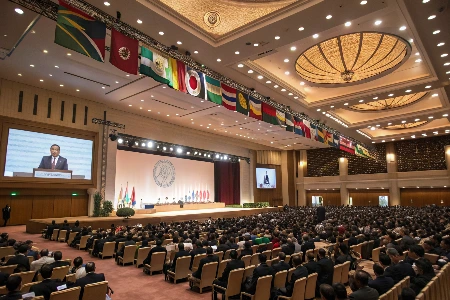Education ministers and global policymakers from over 100 countries convened this week at the Education World Forum (EWF) to address the growing systemic challenges facing the global education sector. The summit, held in London, focused on reimagining education systems in an era defined by digital transformation, inequality, and evolving workforce demands.
A Call for Transformative Leadership
Opening the forum, key speakers emphasized the need for bold, future-focused leadership to rebuild trust in education systems post-pandemic. Discussions highlighted widening learning gaps, teacher shortages, and the urgent need to realign national curricula with 21st-century skills. “The education sector must evolve faster than the challenges it faces,” remarked a keynote speaker from UNESCO.
Technology and Equity at the Core
Delegates explored the growing role of technology in shaping access and inclusion. While AI and digital platforms were celebrated for expanding reach and efficiency, ministers warned against deepening the digital divide between developed and emerging economies. A recurring theme was the need for equitable infrastructure investment to ensure that innovation benefits every learner.
Rebuilding the Teaching Workforce
Teacher training and retention emerged as top priorities. Many ministers acknowledged that educators remain the cornerstone of effective reform, calling for renewed investment in professional development, well-being programs, and fair compensation. Several nations unveiled new frameworks to modernize teacher training in response to AI-enabled learning environments.
Forging Global Partnerships for Change
The EWF concluded with a commitment to foster cross-border collaboration and evidence-based policymaking. Participating countries pledged to strengthen education governance, integrate sustainability into curricula, and promote public-private partnerships to drive reform.



